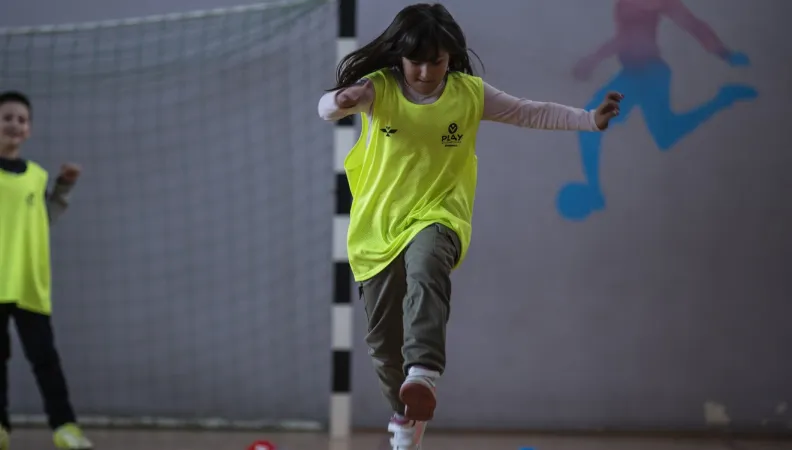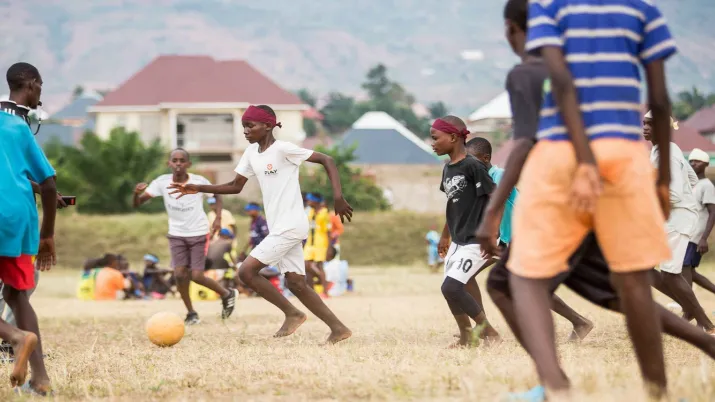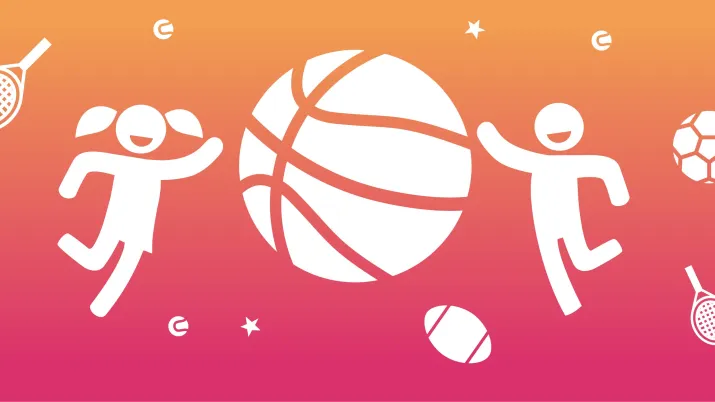Share the page
Using Sports for Children to Learn Lifelong Lessons of Reconciliation in Kosovo
Published on

The armed and bloody conflict that scarred the Western Balkans in the 1990s damaged relations between communities across the region, and it has taken years to forge new bonds. AFD is working with its partners to help, using sports with young people to build bridges. Youth are the vulnerable heirs to the Balkan wars of yesteryear, but they’re also ambassadors for reconciliation. We report from a school in Pristina, Kosovo’s capital.
The wars in Yugoslavia between 1991 and 2001 created long-lasting animosity, tension and discrimination across communities. Latent conflicts still persist today, and can fuel extremist tendencies. AFD, keen to promote reconciliation and social cohesion in the Western Balkans, is counting on sports as a lever for education and the raising of awareness.
The result is a commitment and a project launched last year in Kosovo, Montenegro and Northern Macedonia: Sport4Resilience (S4R). Funded by AFD's Civil Society initiatives and supported by PLAY International, this project aims to strengthen the resilience and psychosocial skills of children and teachers through active, innovative and inclusive teaching methods. PLAY International, which has been present in Kosovo since 1999, has joined forces with two CSOs as part of S4R: Regional Sport Initiative - Playing Together (Regspo) and Together Advancing Common Trust (Takt).
“With the Sport 4 Resilience project, we're tackling ethnic and gender discrimination," says Elira (pictured above), educational coordinator at PLAY International. “We're talking to children here, so we have to find effective ways of tackling serious subjects that affect them in their everyday lives. Sports are one of the best vehicles for reconciliation.”
Further reading: Sports as a Driver of Development and Peace
Through this project, PLAY International and its partners are training and monitoring over 200 teachers (70% of whom are women), 12 university lecturers and 350 student teachers over a three-year period, to give them the tools they need to roll out sports and games where meaningful messages are conveyed and shared.
"The activity we organized today is called 'Color Sorting'," says Arta (pictured above), an elementary school teacher in Pristina, the capital of Kosovo. “The pupils are divided into four groups with different coloured bibs. Their objective is to collect as many cones as possible of a color other than their own. The second stage of the activity consists in restarting the game while blindfolding or tying up the legs of one of the players to temporarily reduce his motor skills.
"During this round, the children are asked not to intervene and let their "handicapped" comrades retrieve the cones without assistance. Then, in a third round, we allow them to help their friends in difficulty. In pairs, they help each other to achieve their goals. In fact, they realize that they perform better as a group, by helping their 'handicapped' comrades."
Through the organization of these activities, trained teachers address themes of disability, gender, respect and mutual assistance. Children from different minorities are encouraged to get to know each other better and work together. Students are encouraged to focus on individual and collective success, enabling them to be themselves and understand their importance to society. They are free to talk about their problems, and to deconstruct stereotypes and prejudices together.
Post Match Analysis
At the end of each session, the children are invited to form a discussion circle, where they’re encouraged to debate the activity they’ve just taken part in, and to examine the issues raised.
“The children's reaction is always very positive," says Arta. “Today, for example, they spoke out about helping each other. They all agreed it's important to support the most vulnerable, and not just through play. I think they're well aware of that. We think it's important to help them verbalize these issues and discuss them together. Children are very sensitive, full of love and understanding. They know how to deconstruct stereotypes. But we need to encourage them to do so, and support them in this process.”
“We won!" exults 6-year-old Oketa (pictured above). “And we won together, with my whole team. It's a lot easier when you help others. We've learned that we have to treat those who have difficulties equally, but also help them when they need it."
If the notions of victory and defeat remain, they’re being cast in a new light.
"The message of today's game is that it's impossible to win, if you have difficulties, without the help of a friend," sums up 7-year-old Diara. “I mean, we can't win together if we ignore each other. I like it when we talk at the end of the game. It's interesting and the teachers help us talk about the problems we see in real life, outside the game."
In all, by March 2026, some 21,000 children aged 8 to 12 (50% of them girls) will be taking part in the activities developed by PLAY International and its partners in Kosovo, Montenegro and Northern Macedonia. At the same time, university professors are being trained in the three countries to promote these debates among young students.
By supporting this project, AFD is reaffirming its belief in the universal values of sport, a vector for social cohesion, self-esteem and living together in peace.
Photos: © Ferdi Limani
Further reading
With just months to go to the Paris Olympics, we chart AFD’s work in Sports & Development
Published on February 9, 2024


